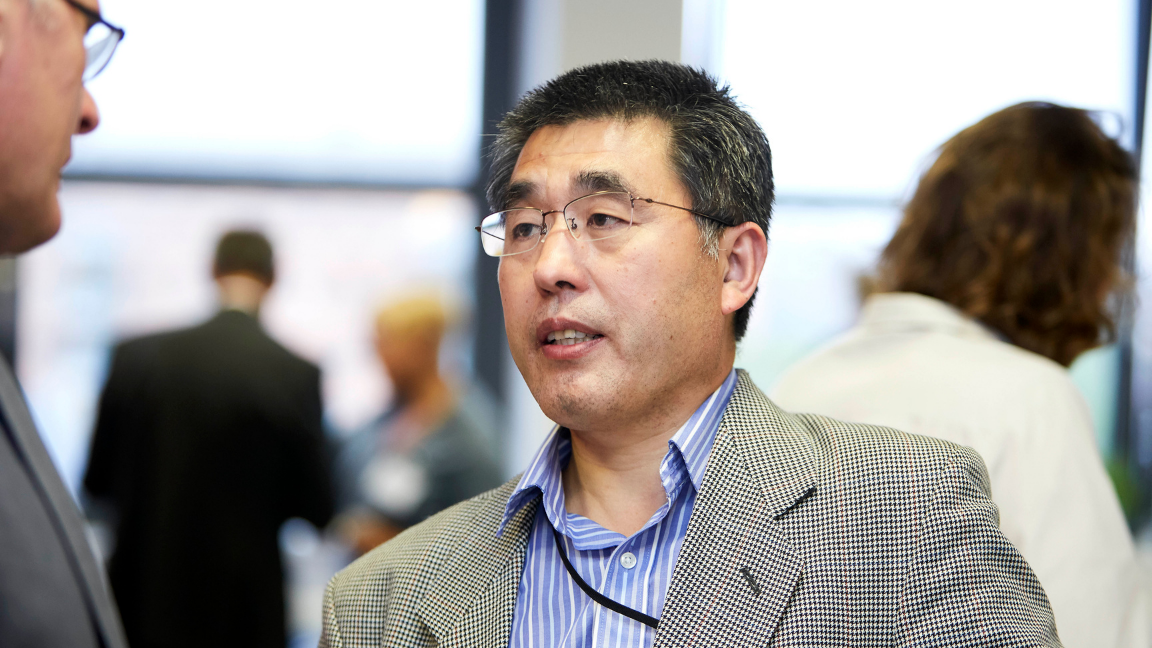
Case Study
Bone and cartilage scaffold to enter clinical trials
Date: April 11, 2022
An osteochondral scaffold that can repair large cartilage defects is due to go into its first clinical trials later this year. The technology has been backed from an early stage through the IKC’s partnership with the charity Versus Arthritis, which aims to accelerate technologies that could improve the lives of people with musculoskeletal conditions.
The IKC Versus Arthritis partnership has awarded nearly £2m funding to 22 projects, leading to the patenting of two technologies. The osteochondral scaffold, developed by Professor Chaozong Liu of UCL, is one of two technologies supported through the partnership that are undergoing regulatory approval, with another already in clinical trials.
The IKC has provided advice on preparations for the first in man trial of the scaffold, which is also funded by Versus Arthritis, and will take place at the Royal National Orthopaedic Hospital, in Stanmore, Middlesex. The trial will recruit 20 early-stage osteoarthritis or trauma patients who have damaged their cartilage or bone. The aim is to demonstrate that the device can be implanted safely, before moving to a larger scale clinical trial.
Professor Chaozong Liu (pictured), from UCL, who leads the project, had hoped to run the trial during 2021, but disruptions to the supply chain caused by the Covid pandemic delayed submission of the device to the Medicines and Healthcare Regulatory Agency (MHRA).
Professor Liu says: “Although the delays have been frustrating, we’re confident that we can gain MHRA approval in the next few months, and everything will then be in place to start the trial towards the end of 2022.”
UK China collaboration
The device uses materials manufactured in Italy and the USA, and is assembled in China by Shenzhen Lando Biomaterials Ltd, a spin out company from Tsinghua University. The partnership with the company was enabled by a £2m grant, awarded in 2016 from a fund jointly supported by Innovate UK and the Ministry of Science and Technology (MoST) in China to create scientific and translational collaborations. The funding also covered longer term animal studies and enabled the company to create a specialist facility in China to manufacture the device to established good manufacturing practices (GMP).
The early-stage funding provided by the IKC and Versus Arthritis enabled Professor Liu and his team to carry out the additional research needed to win the larger grants. This included initial in vitro evaluations which confirmed that cells grew into the scaffold and smaller scale animal studies which demonstrated that the scaffold promoted regrowth of cartilage and regeneration of the bone. IKC support and advice also helped Professor Liu in applications for follow on funding.
Dr Craig Bullock, Head of Discovery and Innovation at Versus Arthritis said: “Osteoarthritis affects millions of people making it the most common type of arthritis in the UK. Given the lack of effective treatment options, many people with severe osteoarthritis require joint replacement surgery. At Versus Arthritis, we never stop looking for better ways to treat osteoarthritis, and osteochondral scaffolds have the potential to treat the condition early and delay or completely remove the need for joint replacement surgery.
We’re delighted that this technology is now being moved towards first in-human clinical trials, a shining example of how innovative researchers working in collaboration with Versus Arthritis and the IKC can move research closer to helping people with arthritis.”
Back to Case Studies
